

Theology of Mission, a course on service and charity, prepares students for a weeklong trip to the U.S. southern border. Among several course objectives, the students will come to understand the Catholic Church’s teaching on immigration, poverty, and vulnerable populations. Sister Ruth Harkins, IHM, associate campus minister for graduate and professional studies, developed the course in 2013 and has been teaching it and leading the trip every year since. Here, we follow Sister Ruth and her students as they share the journey with migrants in El Paso, Texas, and Las Cruces, New Mexico.
Follow these twelve CatholicU students as they share their weeklong journey in El Paso, Texas, and Las Cruces, New Mexico.
With the border trip five days away, this class comes at the mid-term point of the semester and features presentations by three groups based on books offering different perspectives on the border experience.
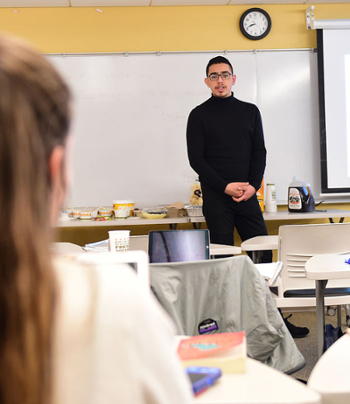 Brayan Hernandez, a junior honors student double majoring in education and politics, has found his voice. His group has read Enrique’s Journey, a bestseller detailing the dangerous and harrowing odyssey of an 11-year-old Honduran boy, often hanging onto the top of a freight train, to be reunited with his mother in America. Brayan was mostly silent earlier in the semester because the topics were too close to home. He came to the U.S. at age 12 as an unaccompanied minor from El Salvador.
Brayan Hernandez, a junior honors student double majoring in education and politics, has found his voice. His group has read Enrique’s Journey, a bestseller detailing the dangerous and harrowing odyssey of an 11-year-old Honduran boy, often hanging onto the top of a freight train, to be reunited with his mother in America. Brayan was mostly silent earlier in the semester because the topics were too close to home. He came to the U.S. at age 12 as an unaccompanied minor from El Salvador.
Now, as these students have become a bonded unit representing different backgrounds and perspectives, he feels comfortable sharing his story during his group’s presentation. The family separation that too often comes with the immigrant experience “leaves a scar on your soul,” he tells the class.
Sister Ruth reminds Brayan that she and his classmates will be there to support him as he returns to the border. She offers other reminders and updates on the trip. The planned visit to a refugee shelter in Juárez, Mexico, has been cancelled due to the coronavirus, now rampant in Europe. The University, Sister Ruth explains, is no longer allowing international travel for spring break mission trips. It is the calm before the storm in the U.S., where there are but a few documented cases.
The students leave campus at 4 a.m., led by Sister Ruth and Pat Fricchione, associate campus minister. They fly out of Baltimore Washington International Airport, change flights in Phoenix, and arrive in El Paso tired and excited. This is the day they anticipated for months; the start of a trip they know might change them.
They pick up two rented SUVs, load in their luggage, and pile seven in each car. By 2 p.m. (4 p.m. on their EST body clocks) they are sitting down for lunch with Dylan Corbett, executive director of the Hope Border Institute. Corbett, an alumnus of their University, is a well-known advocate for protecting the humanity of immigrants in accordance with Catholic social justice. He and his colleague Ilka Vega, who is a community engagement specialist at the institute, have planned a prayer service for the students as a reflective start to their week in the Borderlands.
After lunch, they follow Corbett. Their cars come to a stop in a makeshift gravel parking lot and before them is “the wall,” in actuality a rusted fence more than 20 feet high. As the students approach the fence, they are silent. The only sounds are cars and trucks whizzing above on a highway overpass and birds chirping in the late afternoon sky.
Lining the fence, the students peer through the grates at Mexico, so close that any one of them with a good arm might be able to land a football in Juárez. They look below at the meandering Rio Grande — Río Bravo to the citizens on the other side. They notice Border Patrol surveillance cameras overhead, and note the odd feeling of being watched.
Corbett leads the Prayer of the Faithful, inviting students to participate. Vega strums a ukulele and sings a song she has written about injustice at the border. The students lay their hands on the fence in prayer, splash holy water toward the river in memory of two children who died crossing it, and place yellow daffodils in the grates as a sign of hope.
Vega is a U.S. citizen who lives with her family in Ciudad Juárez. Following the prayer service, she chats with students, telling them it can sometimes take her two hours to get through the “intimidating” inspections at the border checkpoint each morning to get to her job at the Hope Border Institute in El Paso. She remembers the days as a child before 9/11, when she and her family could cross easily to go shopping in El Paso or to have dinner with friends and family.
Each night at the retreat center where they stay, the students meet for prayer and reflection. On this first evening of the trip, Sister Ruth asks them, “What surprised you? What challenged you?”
“I was surprised the border was the same physical land. All the same resources God put here,” says Luke Morris, a senior psychology major. “The people on either side share identity, culture, food, family. The physical boundary divides a community. It made me angry.”
“I kept looking at the birds peacefully flying back and forth. I know it’s a comparison that doesn’t make sense, but I kept wishing it could be the same for humans,” says Alyssa Diaz, a junior nursing major.
“As we were praying, I was looking through the fence at the houses, so different than ours in the U.S. Even the cars were different, so much older than the cars we drive. I wondered what their daily lives are like,” says Bridie McGroarty, a philosophy major.
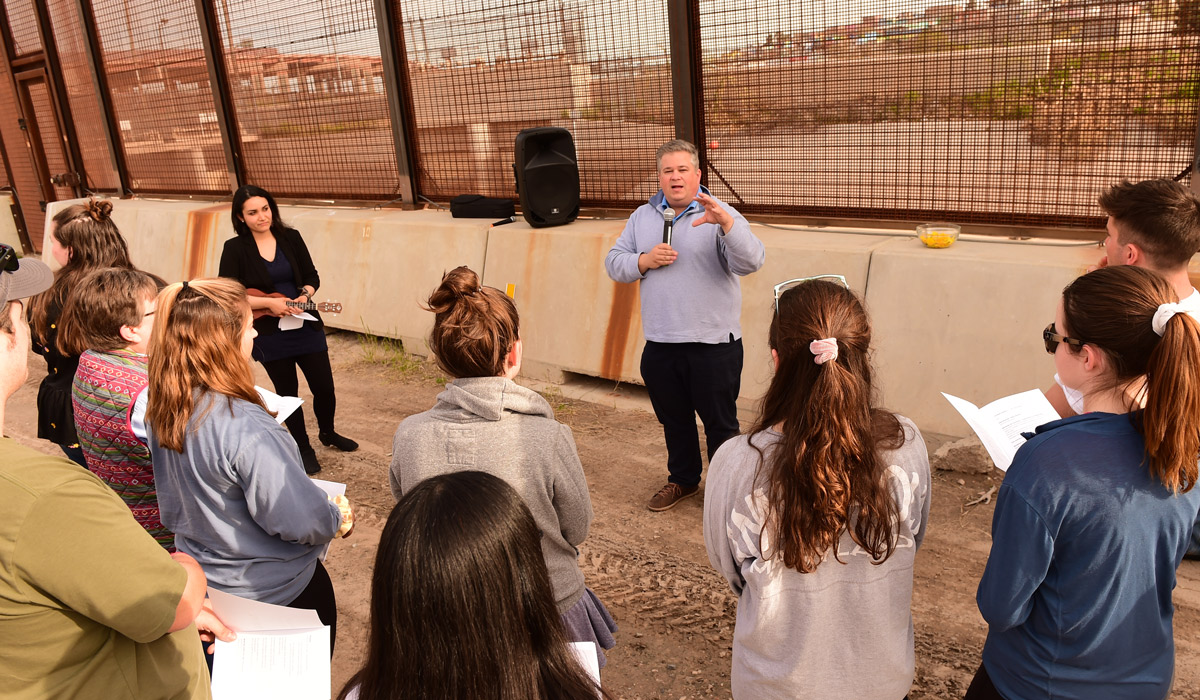
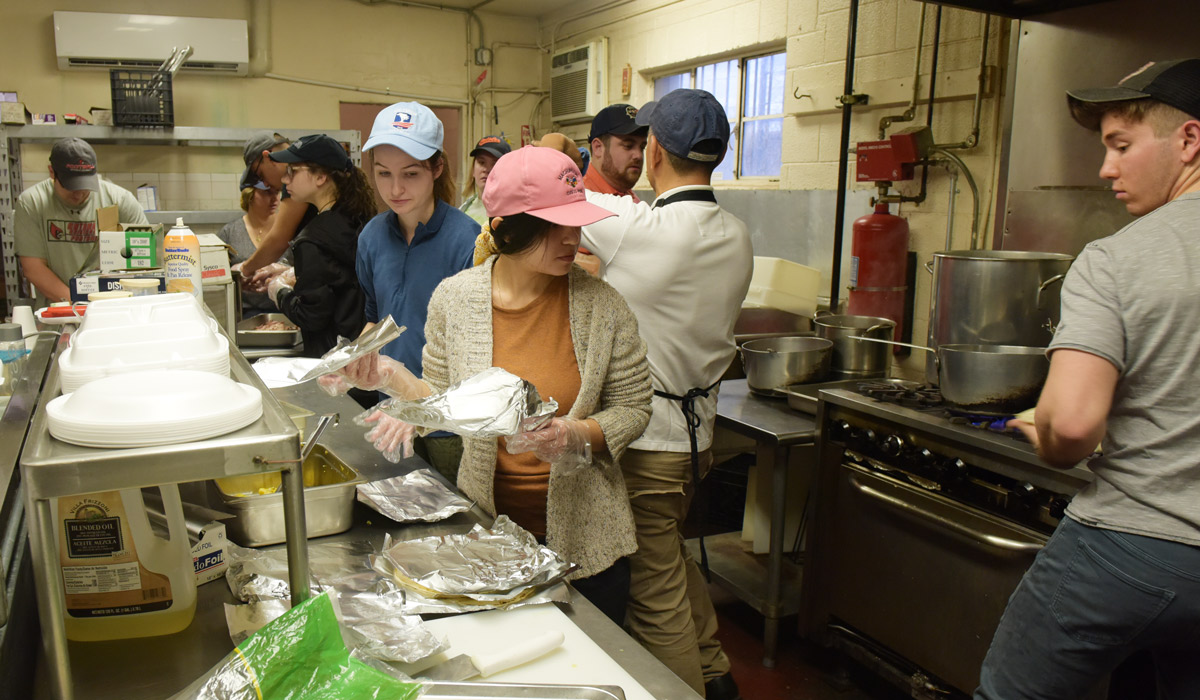
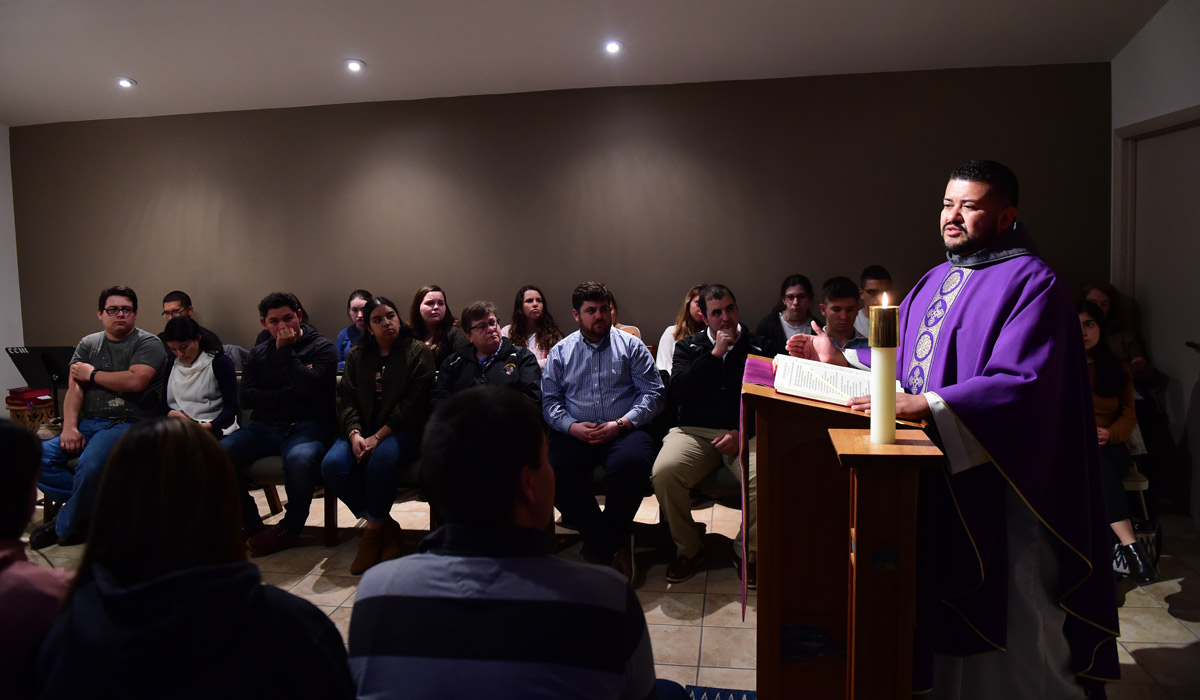
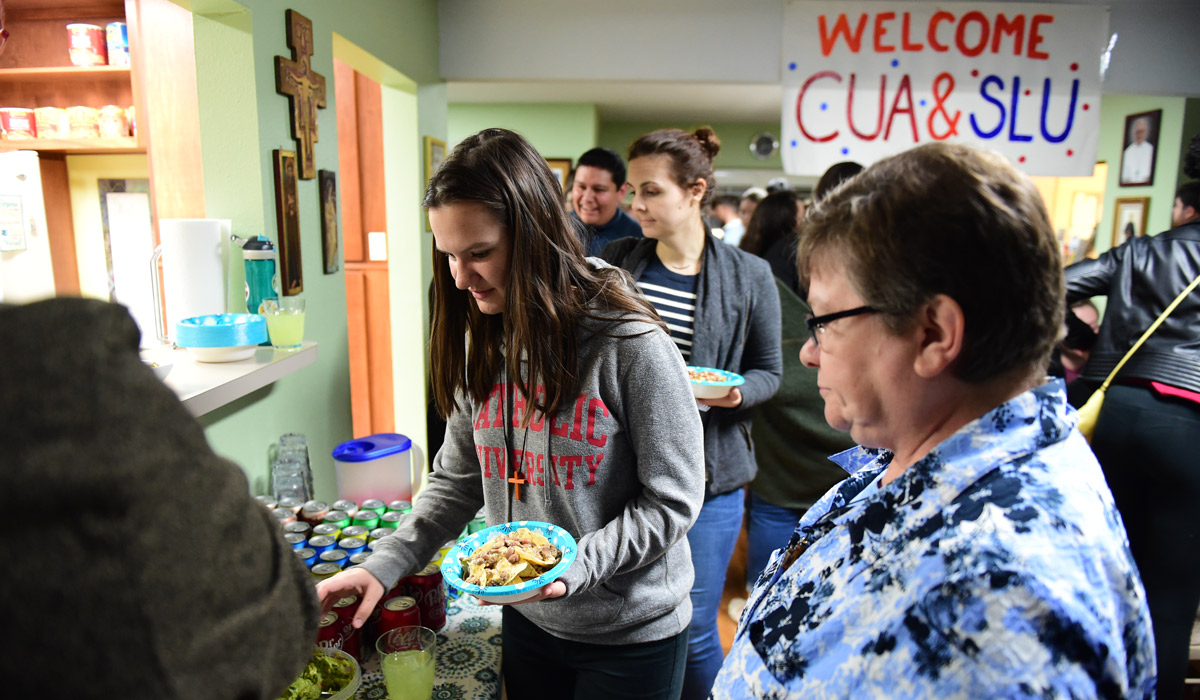
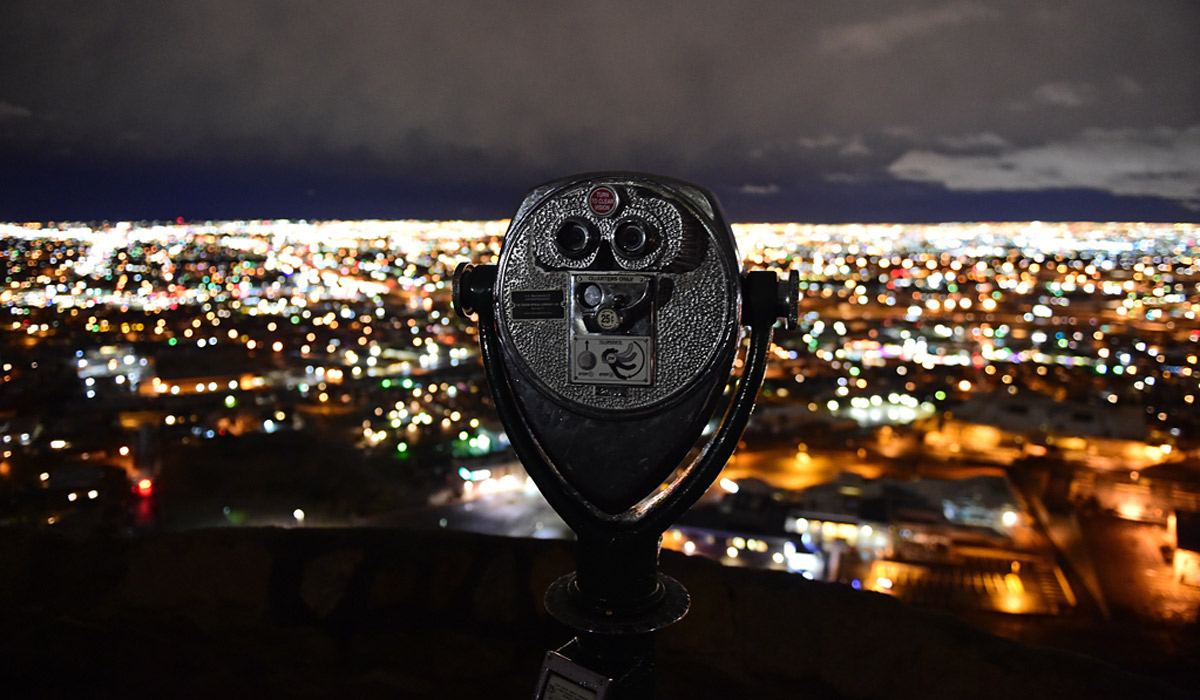
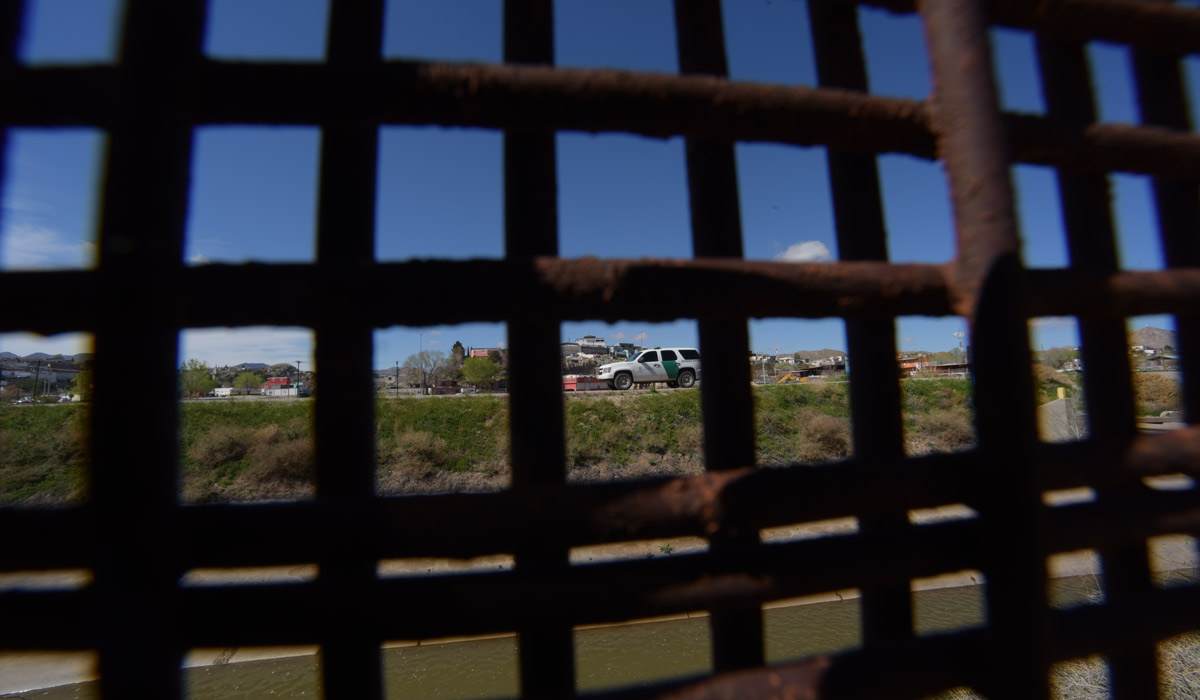
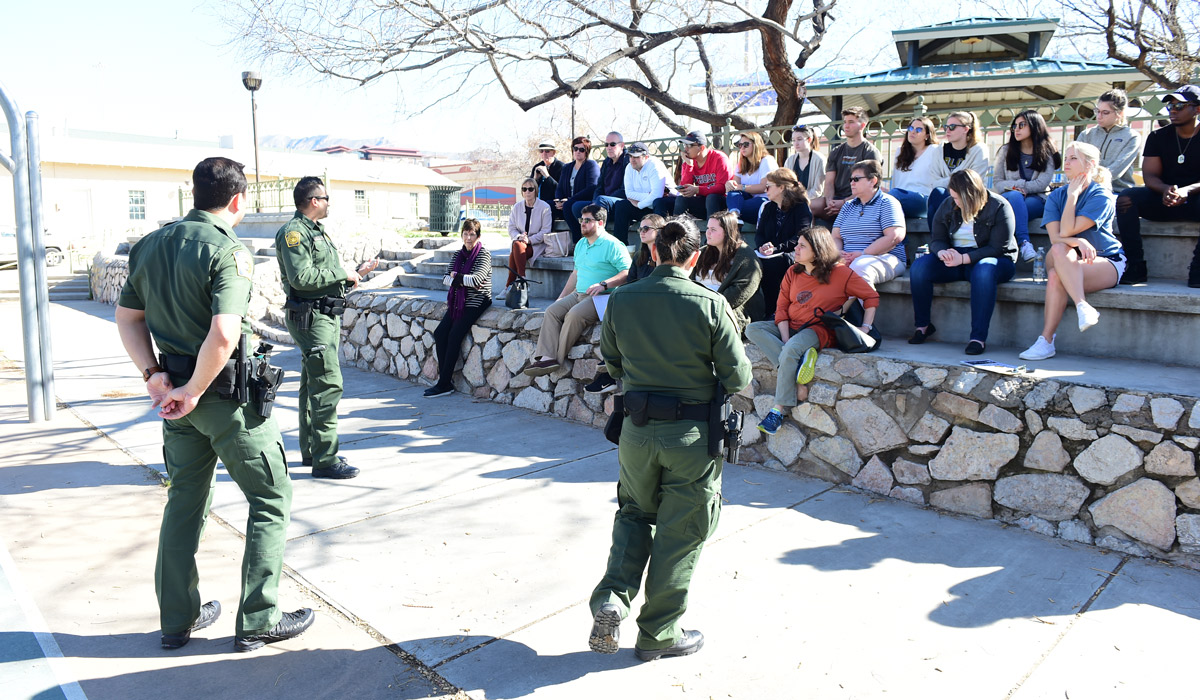
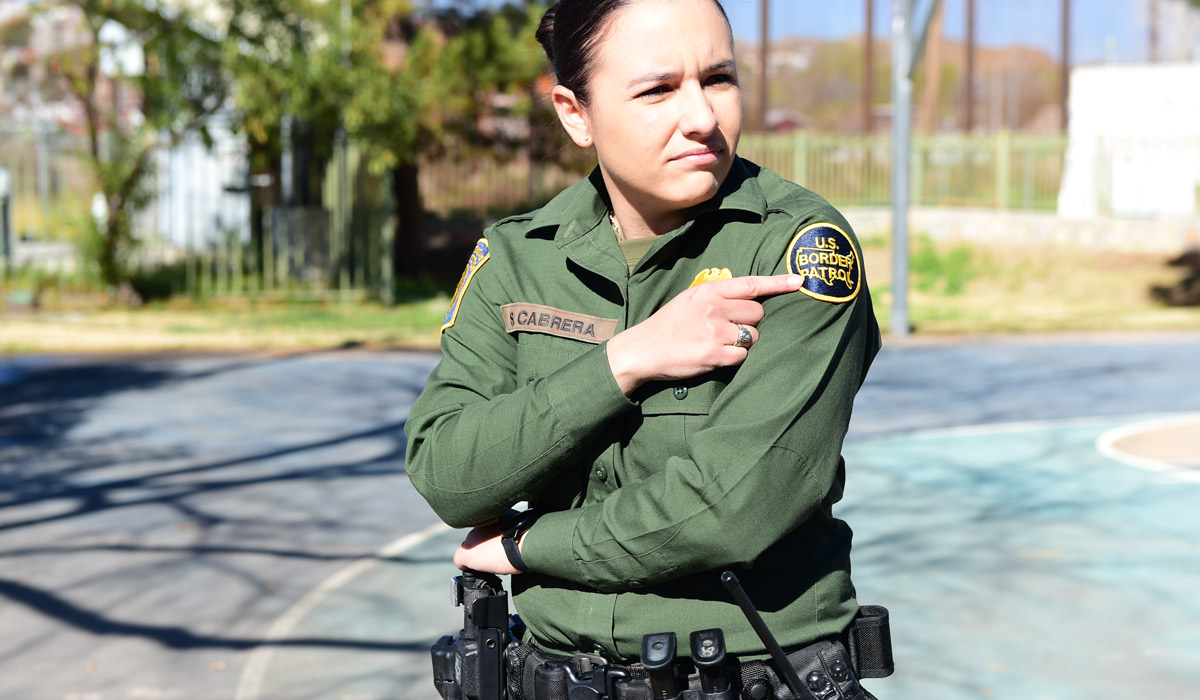
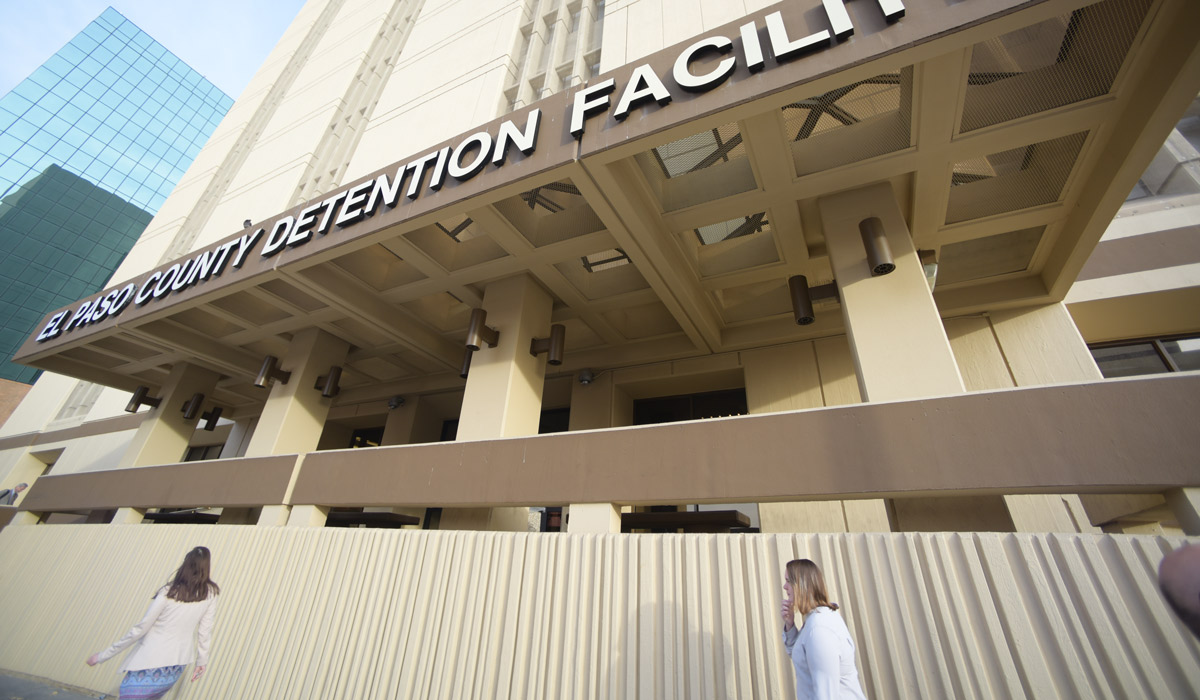
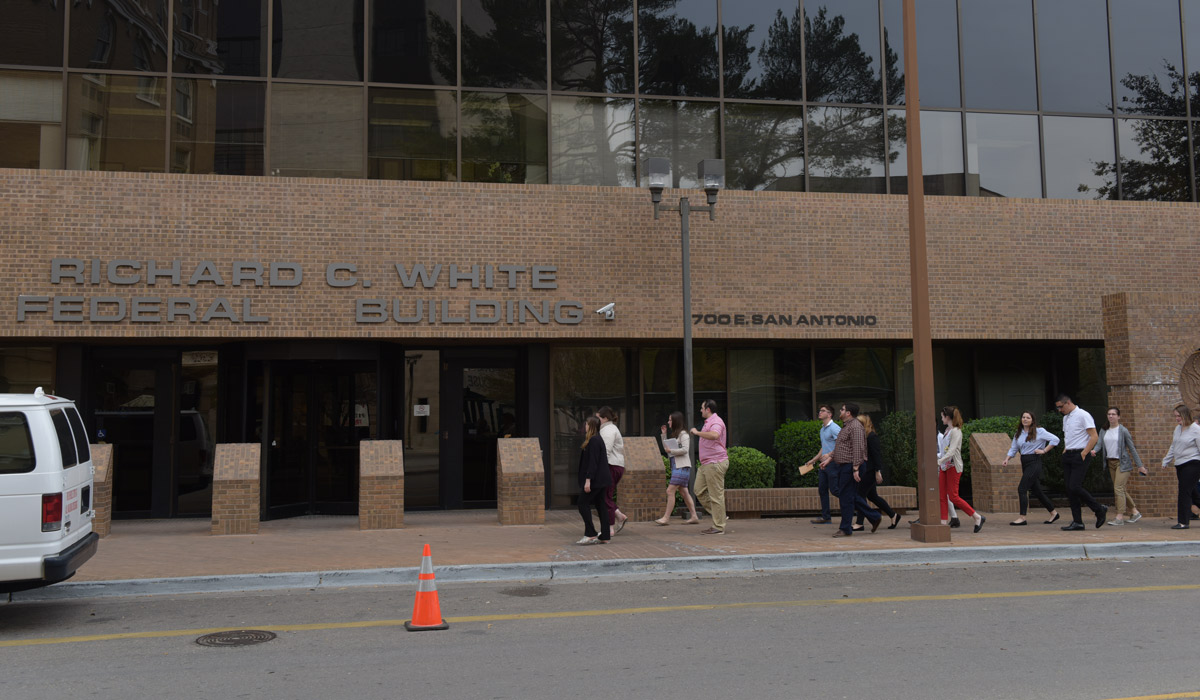
La Tilma Mexican Grill is a ministry of Sacred Heart Church in El Paso. Located in the parish center, the Grill offers reasonably priced meals, along with a flea market, for residents. Run by Chef James Martinez, it also provides employment and training opportunities for community members.
Under James’ guidance, the students begin meal prep for the Sunday rush that will follow Mass. Nicholas Lubrano, a first-year politics major and football player, is peeling potatoes at rapid pace. Luke is working the grill. Others are shredding meat, frying eggs and potatoes, baking corn muffins, and mixing up batches of Horchata, a sweet rice-based drink.
Guests fill tables that are adorned with bright-colored crepe paper flowers, and the orders are coming fast. With a steady and patient hand, James is orchestrating while Brayan and Alexandra Franco, a master’s social work student, are translating orders.
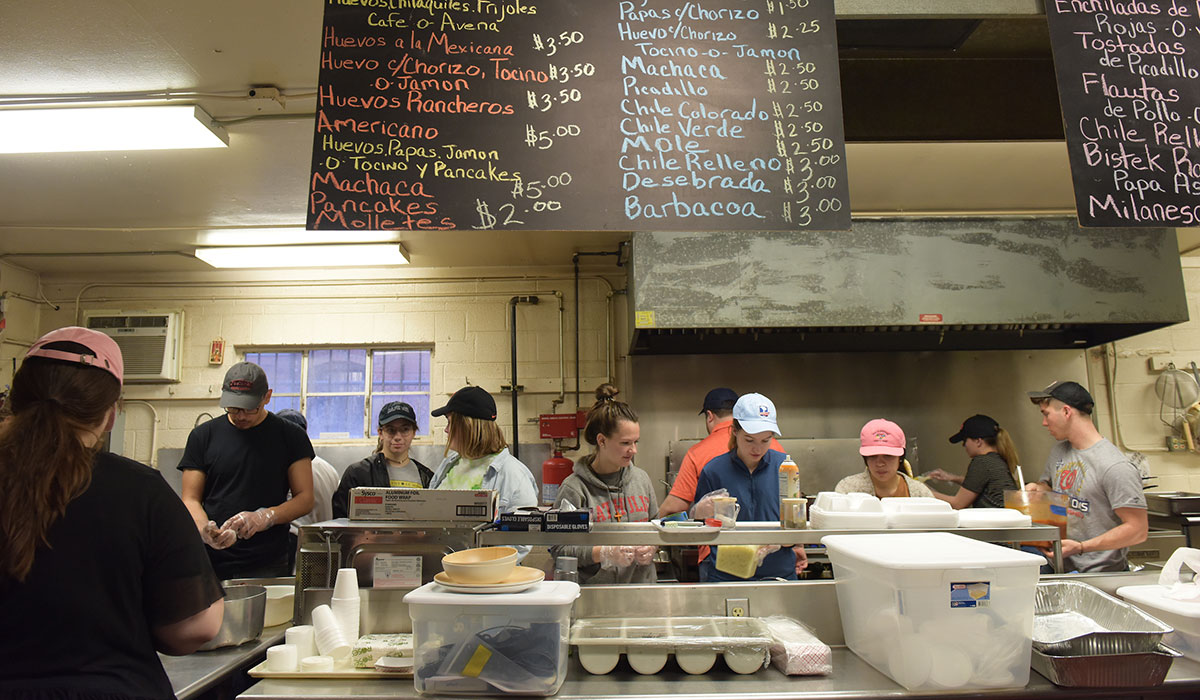
Later that night, the Cardinal Newman Society at the University of Texas at El Paso (UTEP) welcomes the CatholicU group for Mass and dinner.
“Thank you for coming to the Borderlands,” says Franciscan Friar Mario Serrano, a Catholic University alumnus. “The Mass will be bilingual. Please respond in your language.” It is raining as darkness falls outside the San Romero University Ministry Student Center
“Man-made laws are not focusing on humanity,” says Father Mario in his homily. “The law of God shows justice and mercy. Law can be love. We are meant to be people of hope. We are meant to see people as brothers and sisters no matter what side of the river we are born on.”
Following Mass and after spending most of the day serving meals to others, the students are now the ones being served as they are treated to a dinner of taco bowls and bizcohos (Mexican cinnamon cookies) homemade for them by UTEP students and their families.
An immersion trip includes service, learning, and accompaniment. Today is about learning and begins on a basketball court near the old Fort Bliss, steps from the border wall. U.S. Border Patrol Officers Altunez, Cabrera, and Quintero provide an overview of what they do to protect America’s southern border, answering several rounds of questions.
After a quick bag lunch, they head to the Diocesan Migrant and Refugee Services, where they hear from lawyers who represent children who have come to the U.S. unaccompanied.
From there, they meet again with Dylan and Ilka at the Hope Border Institute. Dylan begins his presentation by referencing “Night Will Be No More,” a recent pastoral letter from Bishop Mark Seitz of El Paso. The letter reflects on the massacre of 22 people at the El Paso Walmart last August, a mass shooting fueled by racism and hatred, and explores the long history of racism at the border. Dylan takes on that theme with a history presentation dating as far back as the Pueblo Revolt of 1680.
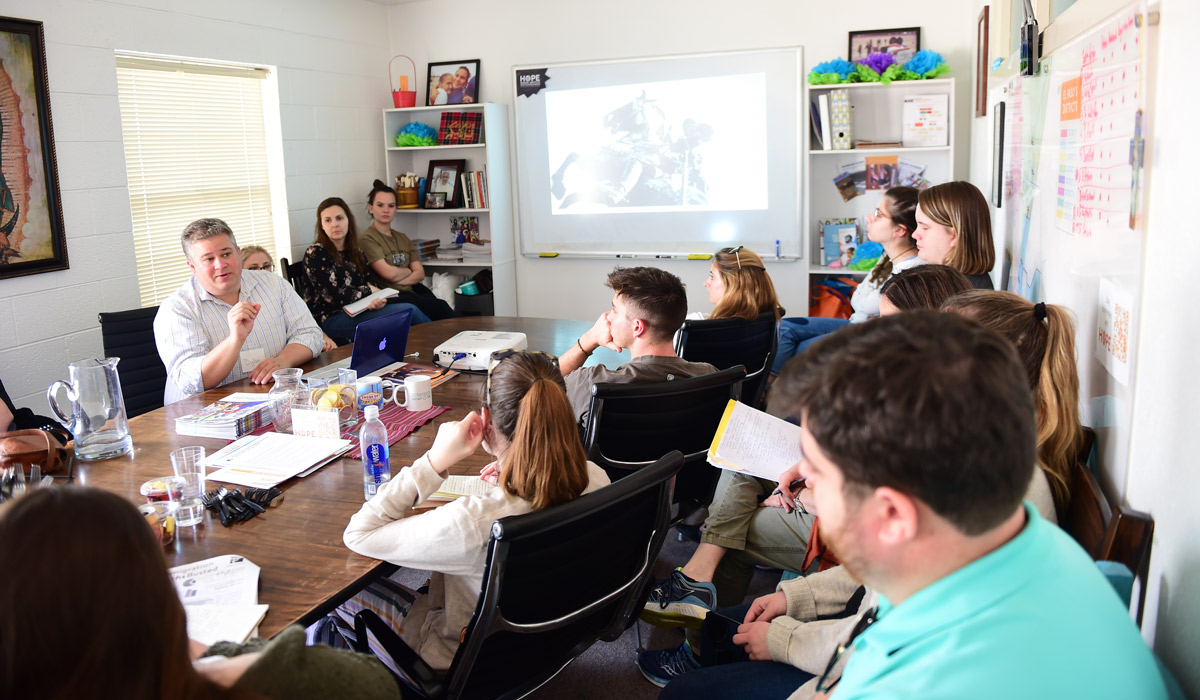
The next stop in the day of learning is a charity-run refugee shelter. The building, once an electric company, houses families seeking asylum. Before the Trump Administration’s “Remain in Mexico” policy denied asylum seekers entry into the U.S., the shelter was often at its 500-person capacity. Today, there are about five families seeking refuge. One of the shelter workers, Pietro, tells the students that their “guests arrive tired and frightened with just the clothes on their backs.” The sounds of children’s feet running across the concrete floors echo through the huge warehouse rooms.
A morning information session and visit to the prison in downtown El Paso brings a few of the 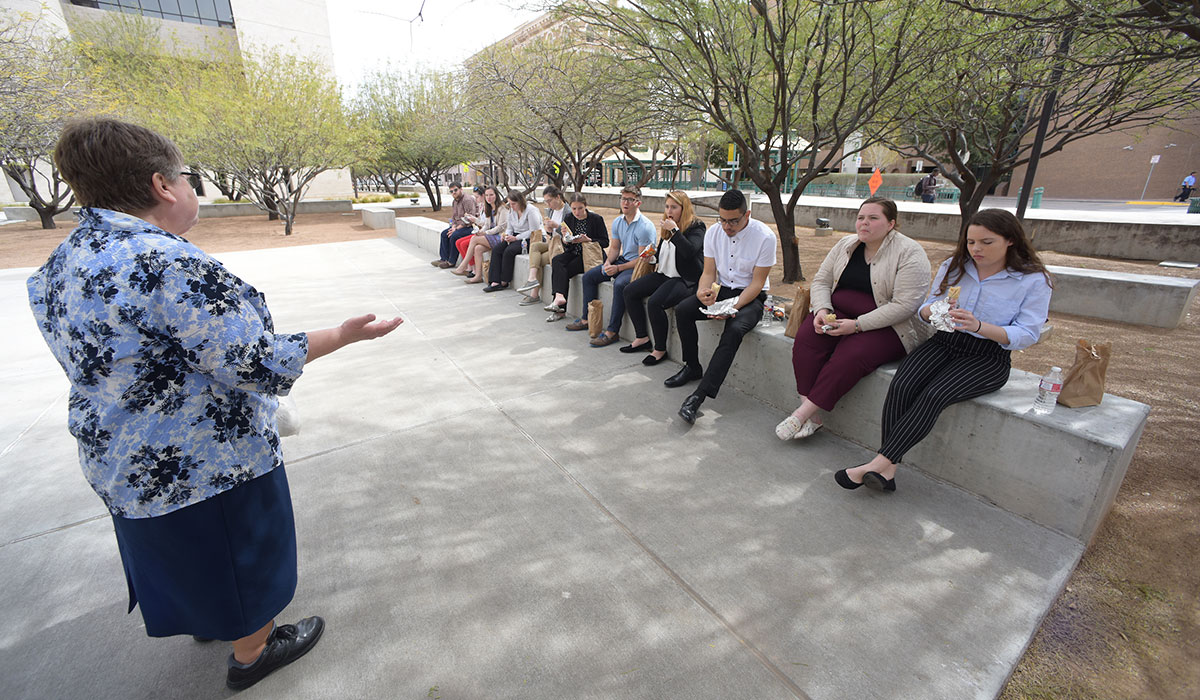 students to tears as they witness the stark reality of life behind bars. Many have questions for the officers about the criminal justice system in the context of social justice. They eat a bag lunch in a nearby park and then file into the courthouse where they had prior approval to observe immigration court proceedings. After waiting two hours, they are told they cannot be accommodated today. Later during evening reflection, Sister Ruth asks them to consider their experience of being turned away as a metaphor for the immigrant experience at the border.
students to tears as they witness the stark reality of life behind bars. Many have questions for the officers about the criminal justice system in the context of social justice. They eat a bag lunch in a nearby park and then file into the courthouse where they had prior approval to observe immigration court proceedings. After waiting two hours, they are told they cannot be accommodated today. Later during evening reflection, Sister Ruth asks them to consider their experience of being turned away as a metaphor for the immigrant experience at the border.
The small farming community of Hatch, N.M., is known as the “Chili Capital of the World.” This morning in Hatch, migrant farmers and their pastor welcome students to a sunrise Mass. Cars and trucks roll into an onion field in darkness. Tractors shine their headlights on farmers pulling an altar from the back of a truck. Father Alejandro Reyes dresses in his vestments. Candles are lit. Guitars come out of their cases. They have this down. Mass is celebrated in these fields regularly.
Students and farmers kneel together in the dirt. Brayan offers a reading in his native language. In his homily, Father Alejandro speaks directly to the students. “Today we welcome you to our family. You are hope and light because you care enough to come here.”
As the sign of peace is shared, pink ribbons of light appear in the sky. By the end of Mass, the sun is up and the students are in awe at the sight of miles of fields leading to the majestic southern New Mexico mountains. Trays of warm burritos, made in the early morning hours by parishioners of Father Alejandro’s Our Lady of Mercy Church, are pulled from the flatbed of a pickup truck.
With large heavy bags of onion sprouts tied around their waists, farmers take off with lightning speed skillfully planting their crop. They are paid by the row. Some stay back to instruct the students, who are eager to begin planting.
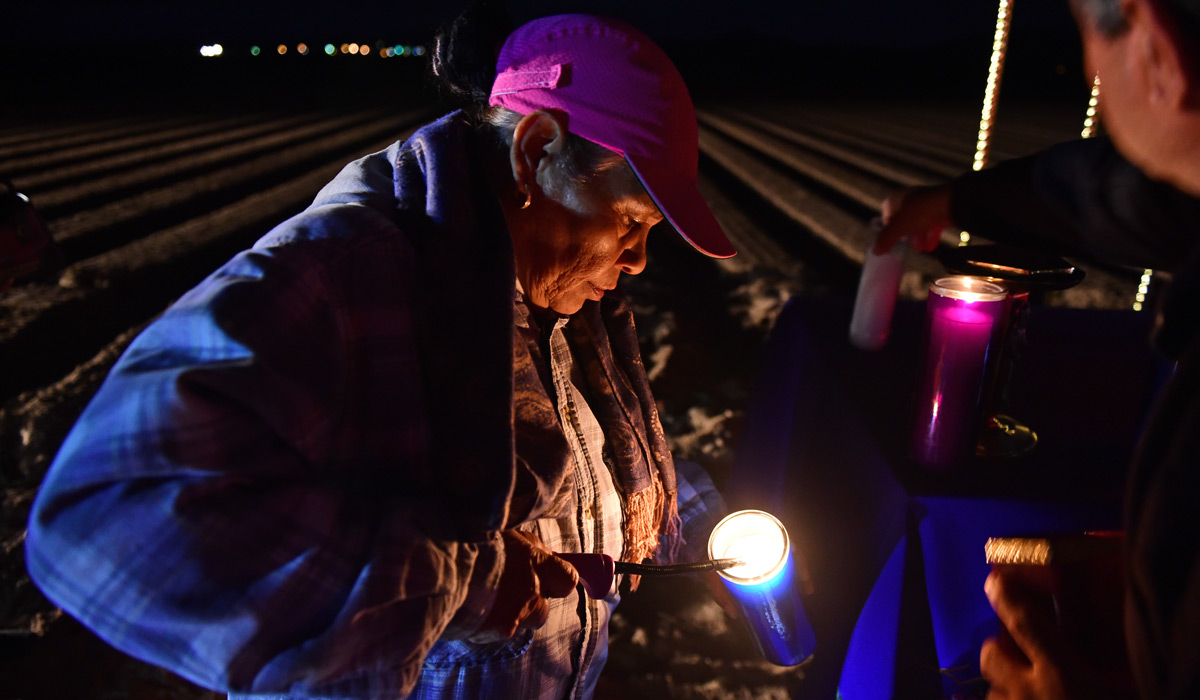
Students attend a sunrise Mass in an onion field with migrant agricultural workers. Following the Mass, students planted onions with workers in the fields in Hatch, N.M.
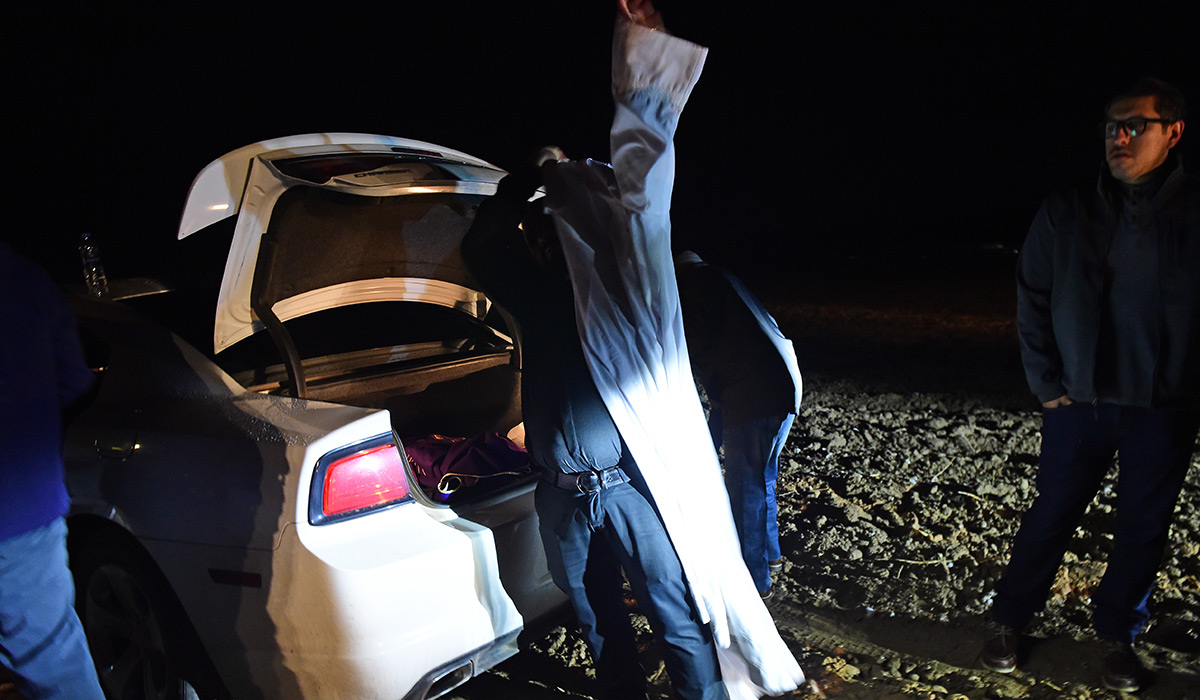
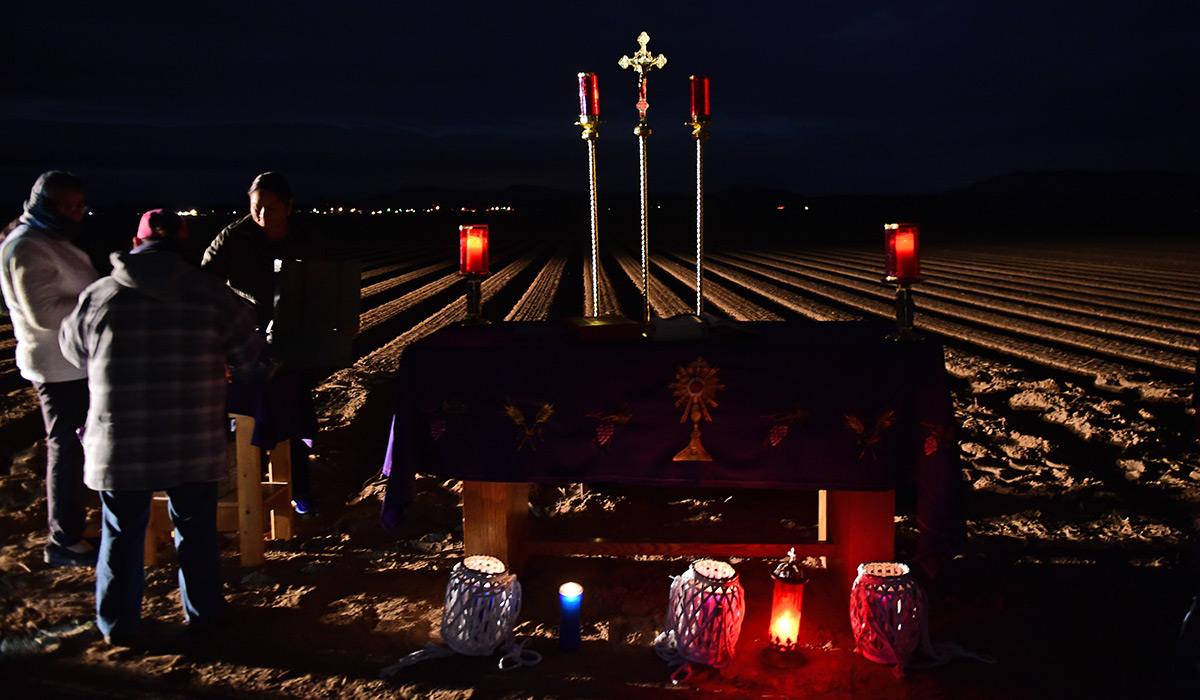
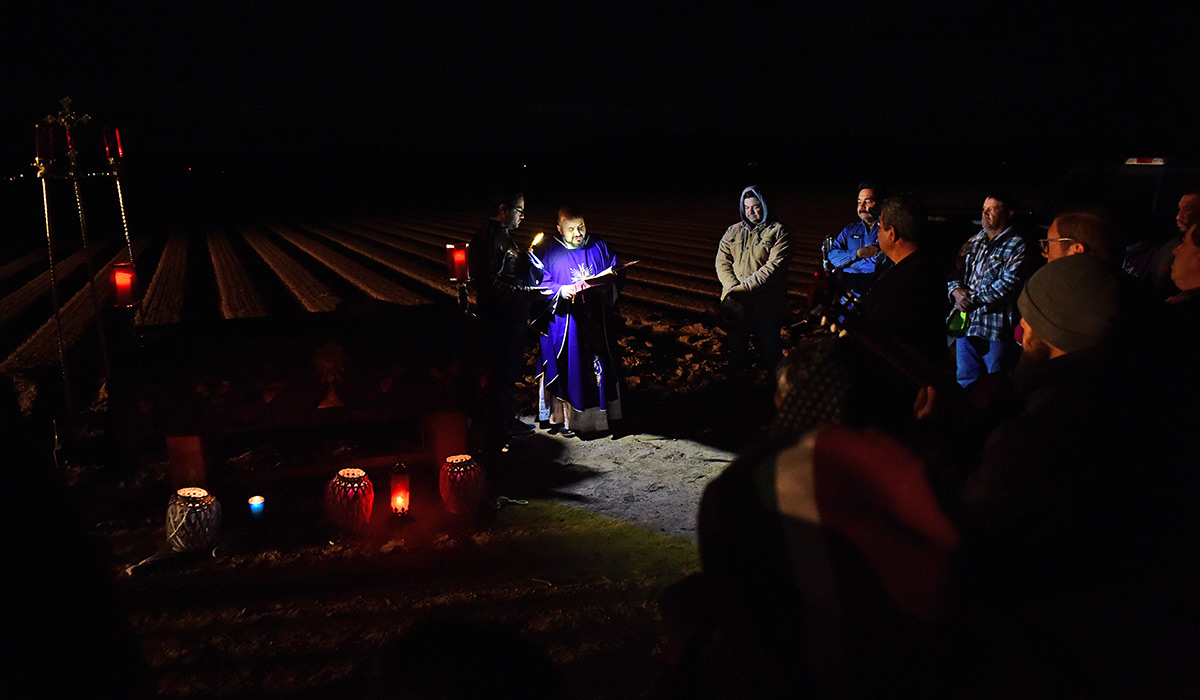
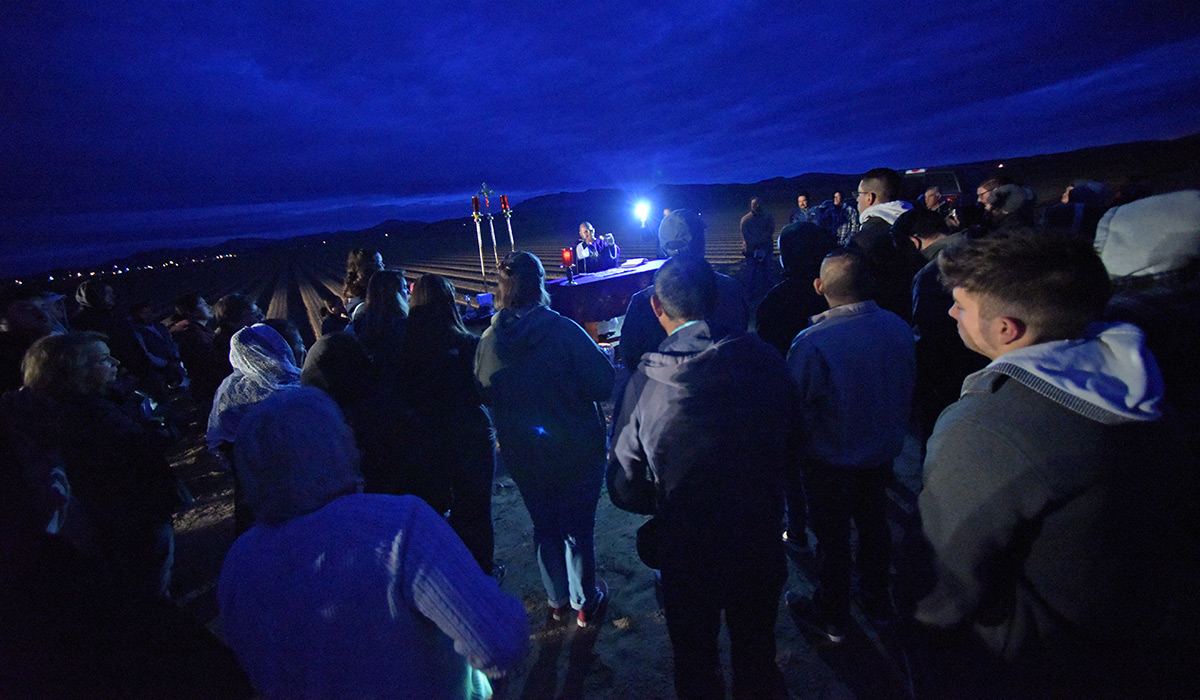
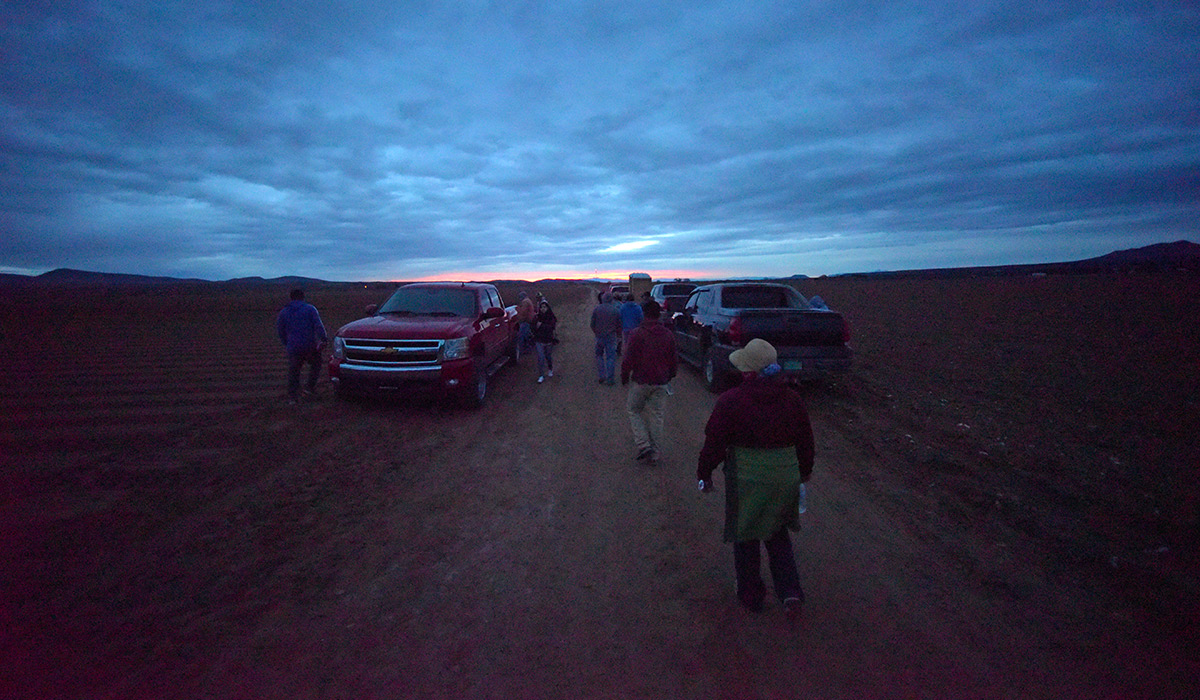
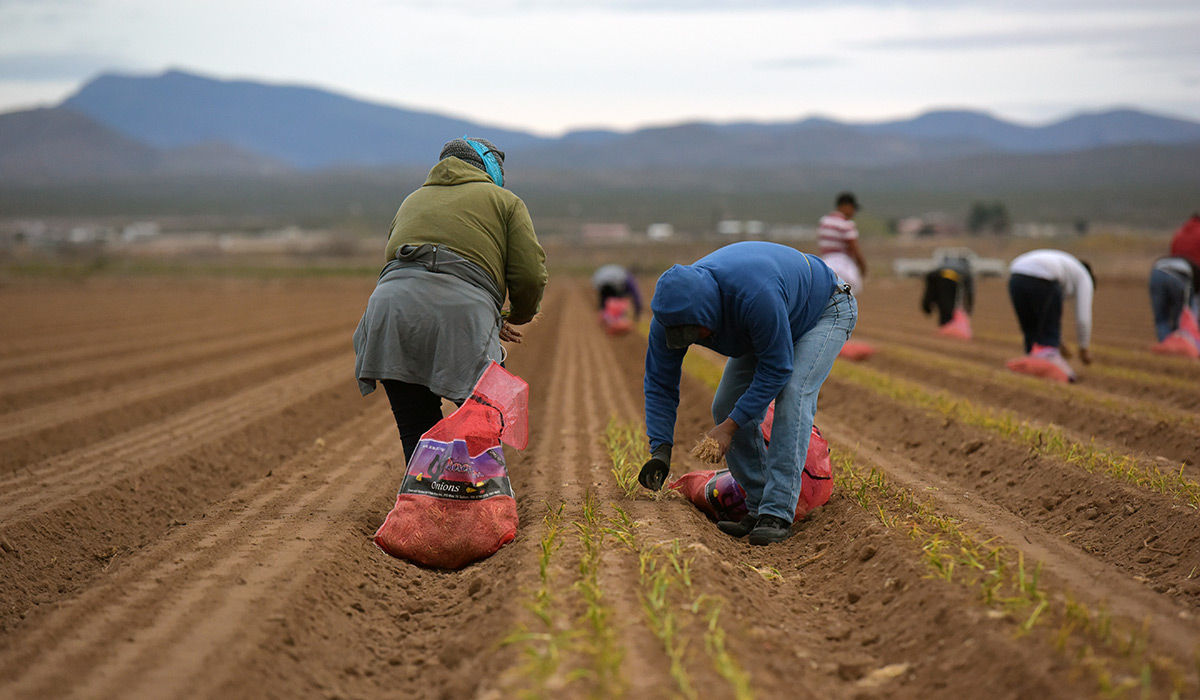
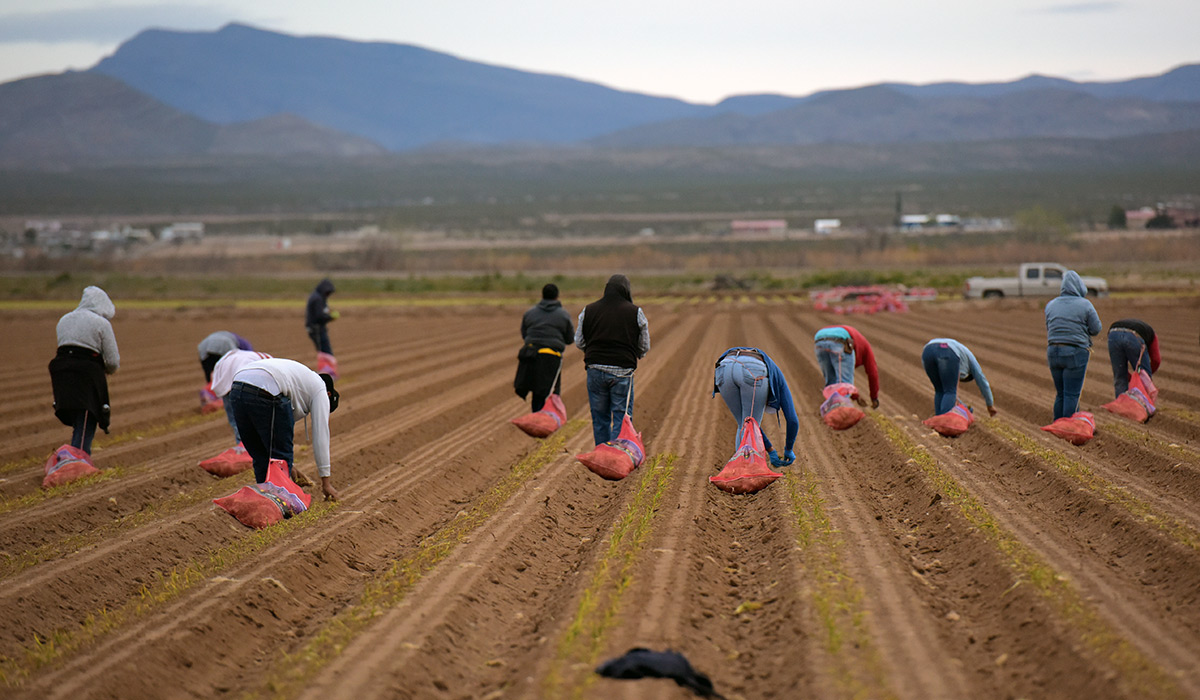
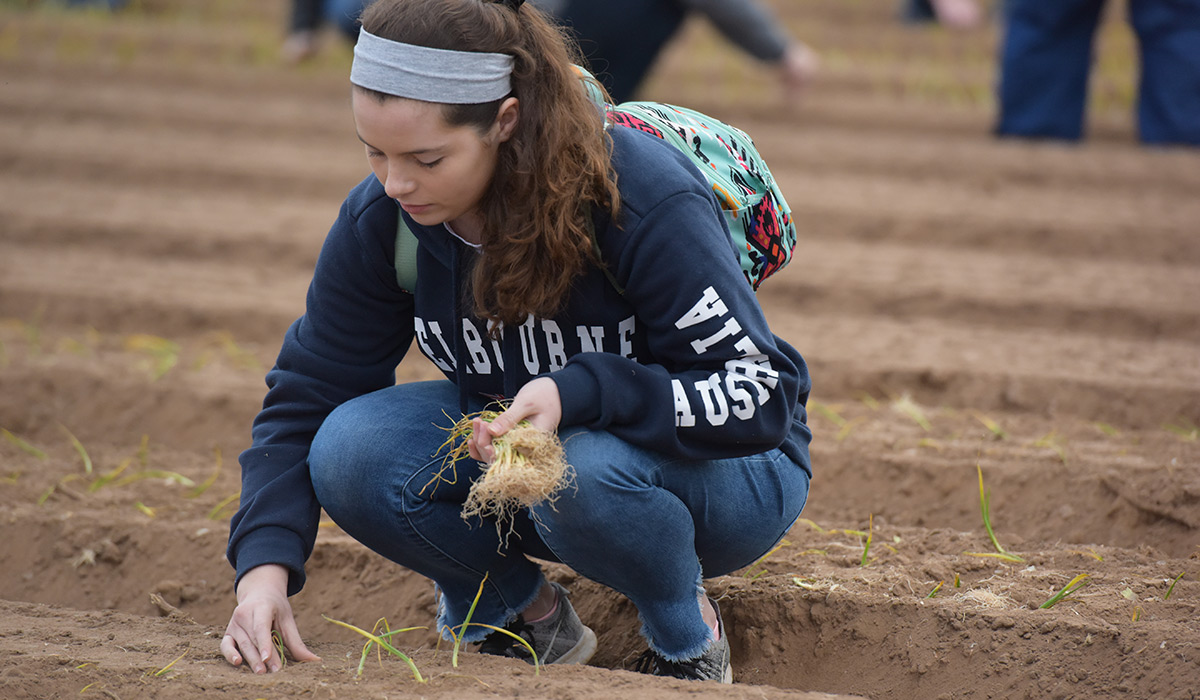
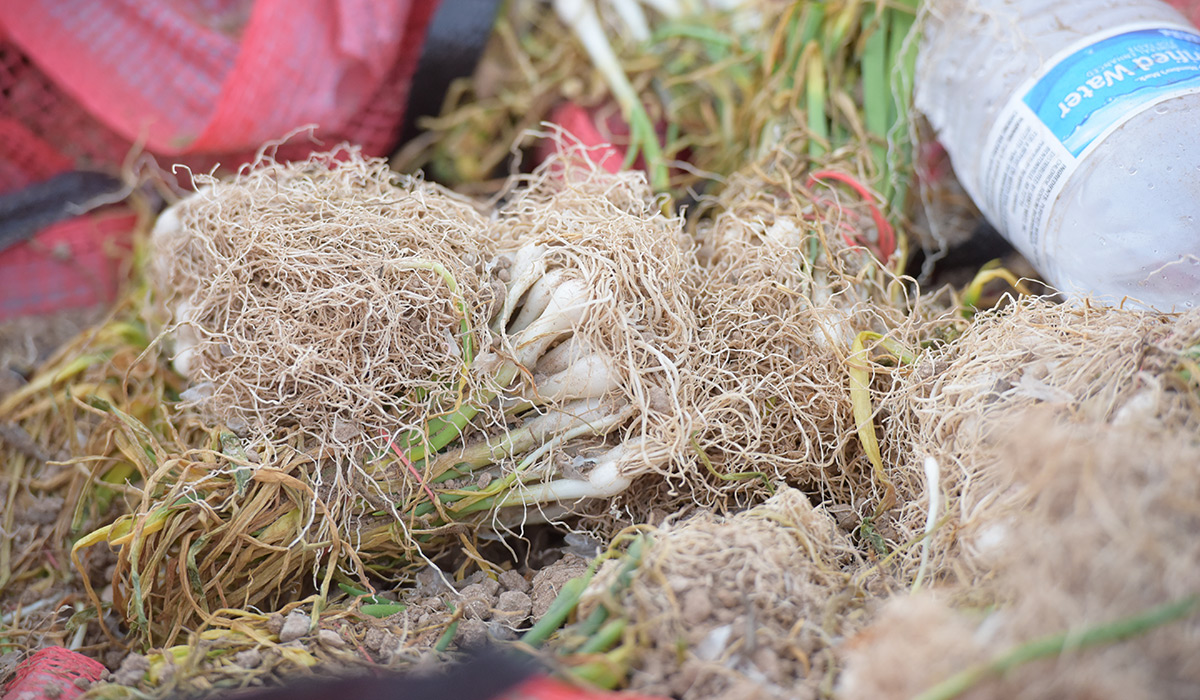
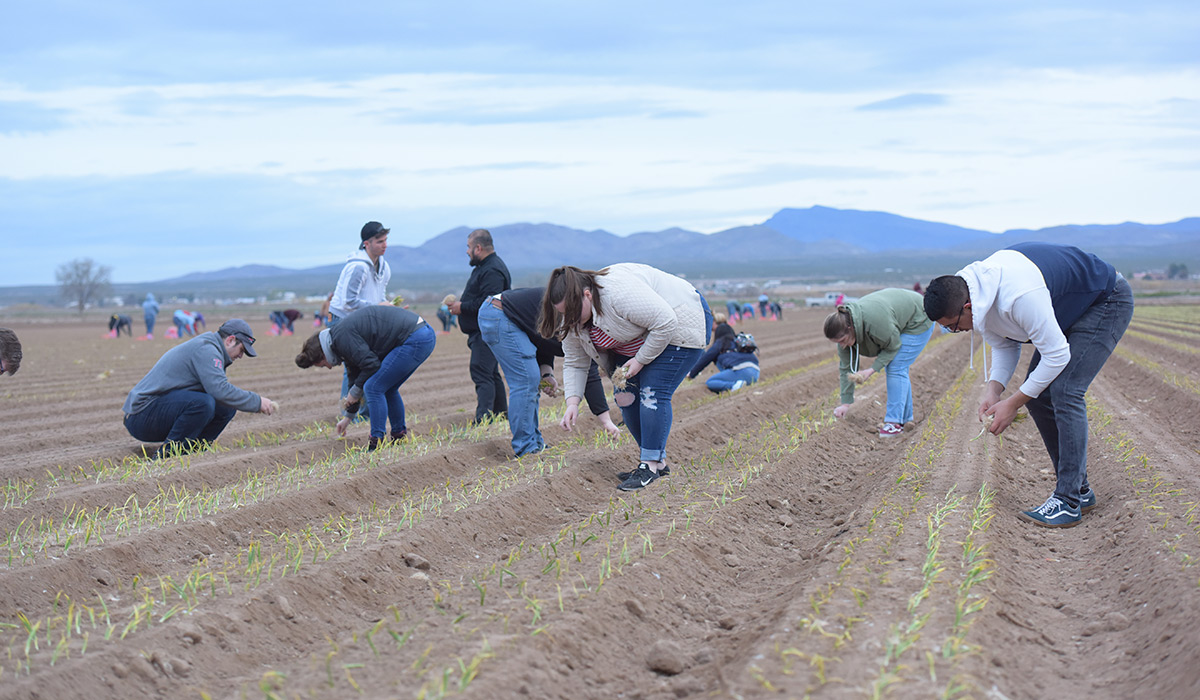
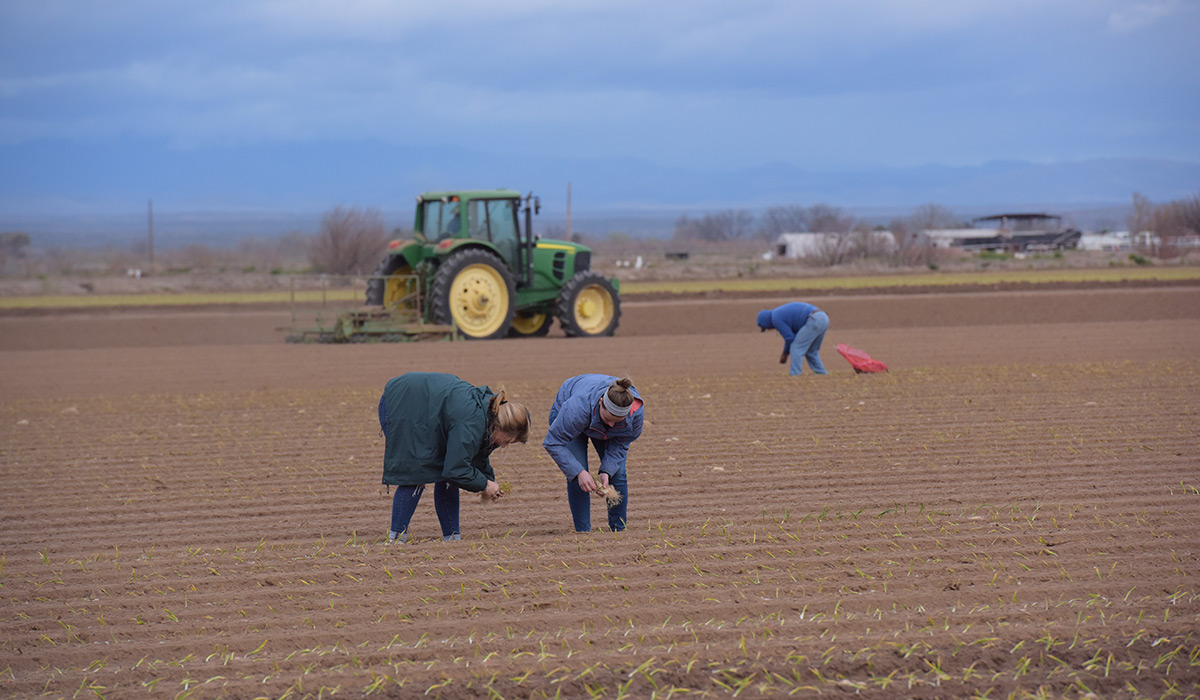
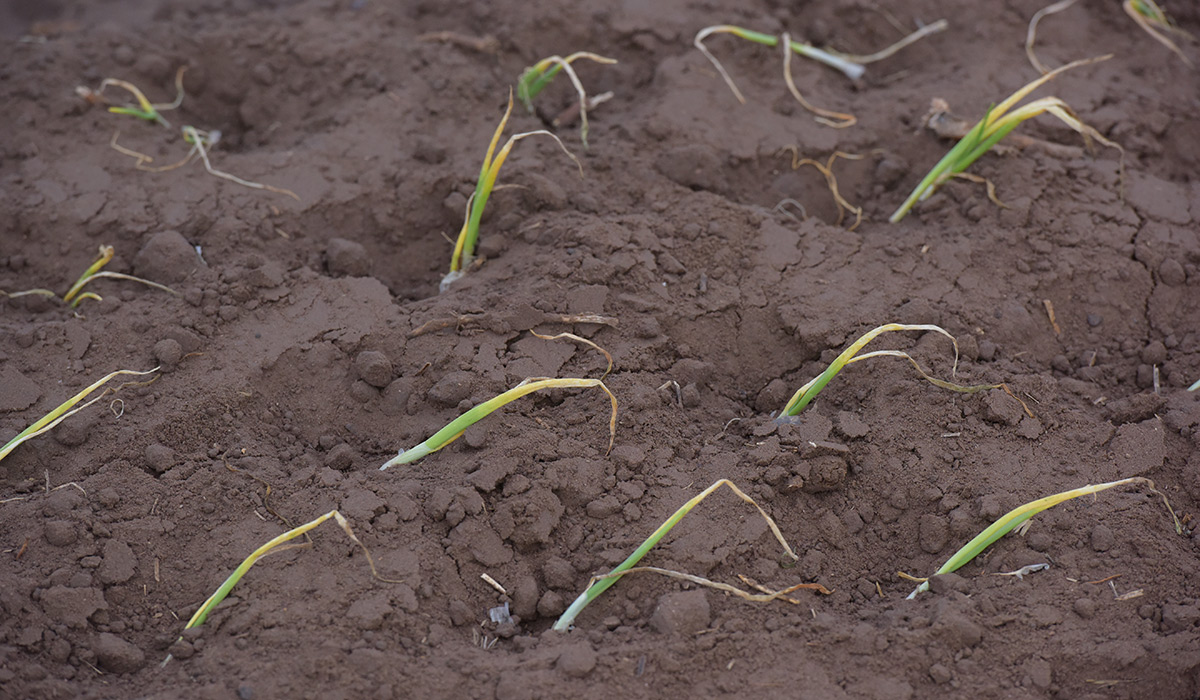
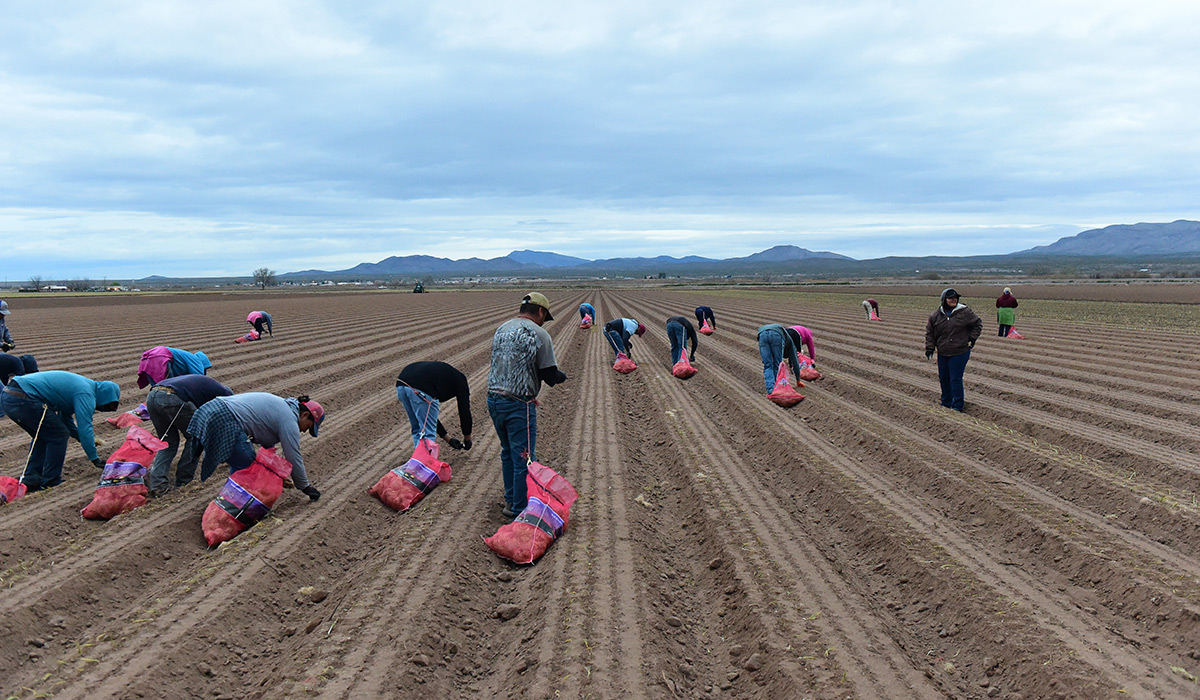
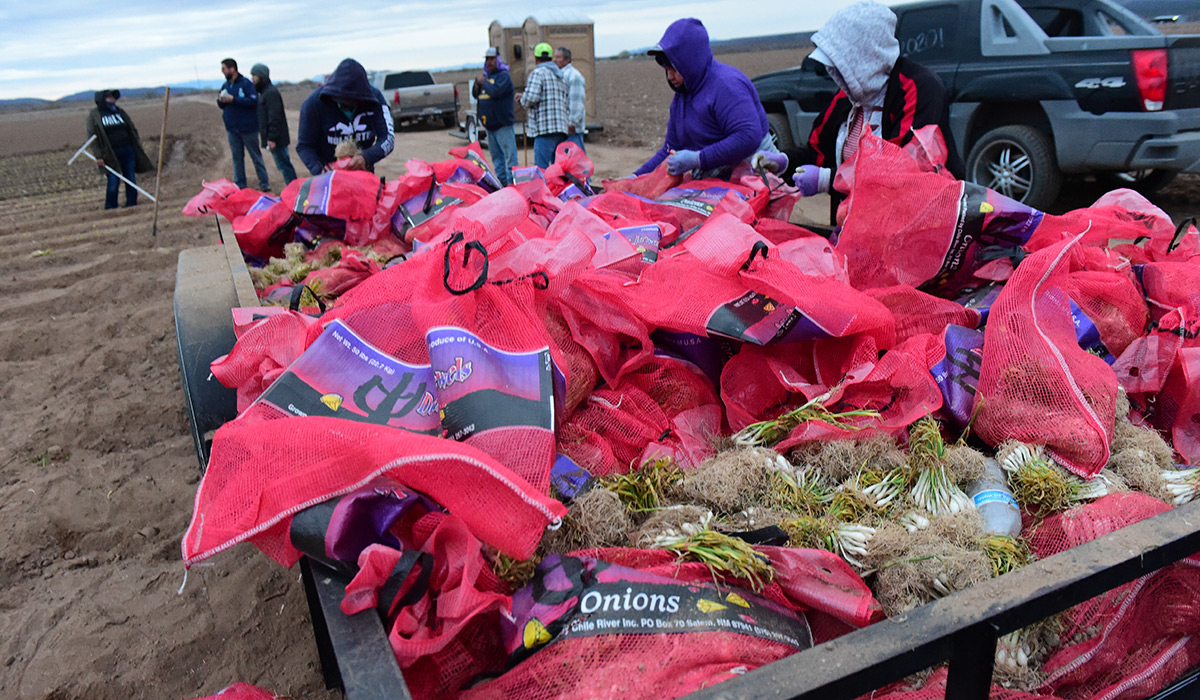
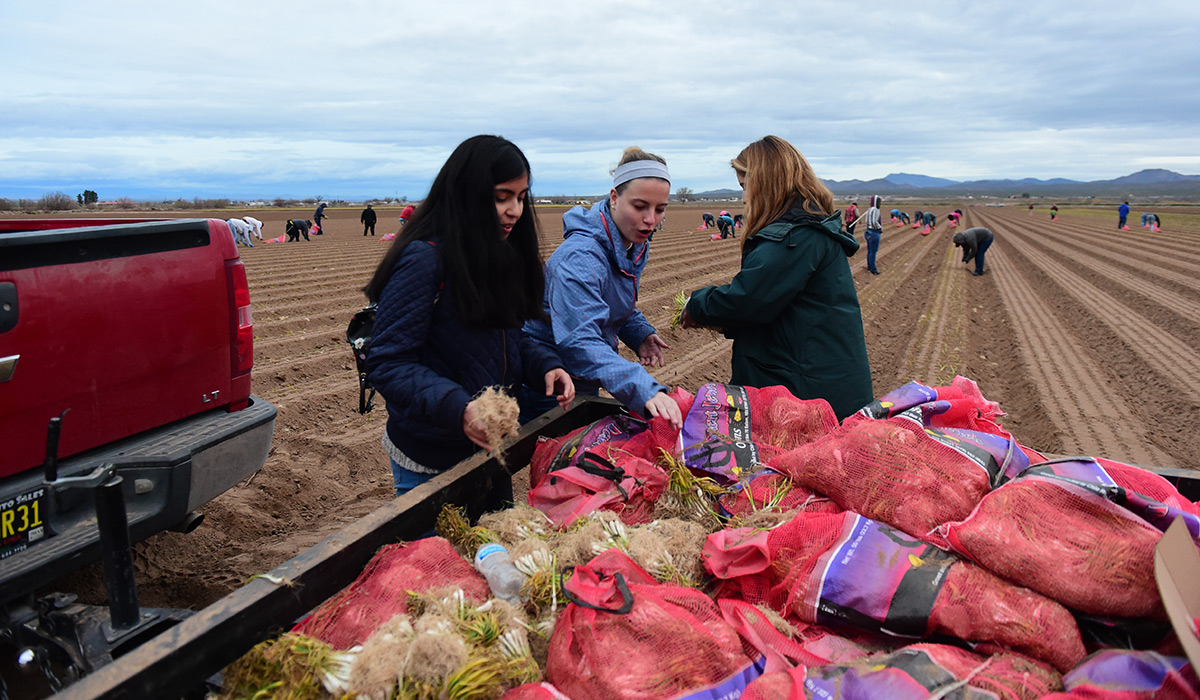
Later in the afternoon, they are guests at Our Lady of Mercy, where parishioners have prepared a feast of Mexican and American dishes. Before the meal, students take part in a debrief led by Abraham Sanchez, a community organizer with CAFe (Communities in Action and Faith). He asks students to each offer one word to describe their experience in the field. The words come easily: surprised, informed, tired, grateful, sore, challenging, respect, sad, hope.
“These are the hands that feed us,” says Abraham, “but they do not share in the economic benefit.” He outlines the challenges facing migrant workers including wage theft and low wages, lack of benefits, and fear of deportation if they organize.
Zoe Zelch, a first-year politics major, begins reflection that night by reading the Parable of the Workers in the Vineyard. “Even though it was just one morning, I will hold onto this experience for a long time,” she says. “I will think more about the humanity of the products I consume.”
“I was mesmerized by the beauty of the colors in the sky bouncing off the mountains. The people were so welcoming. God was present in that sunrise,” Alexandra says.
“We were so generously fed. They welcomed us with open arms. They have so much faith,” says Nick. “It’s hard to imagine that these are the same people we seek to push out. If only more of us could meet them.”
“I will hold the faces of that day, the sights, the experience deep in my heart,” says junior Regina Brennan, who is studying politics and anthropology.
“I was moved by the faith of the people we met this morning,” says Catherine Kildea, a junior politics major. “Even the oldest among them got on their knees in the mud and dirt.”
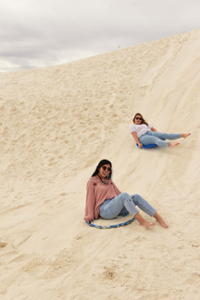 A morning trip to White Sands National Park serves as a joy-filled substitute for the cancelled visit to the Juárez refugee shelter. The sprawling gypsum dune field is one of the world’s great natural wonders. Leaving their shoes behind, students are sledding on the cool white sand, laughing together at each wipeout. After hours on the dunes, they assemble in the parking lot, where Sister Ruth tells them their planned afternoon of helping at an after-school program has been cancelled due to growing concerns about COVID-19.
A morning trip to White Sands National Park serves as a joy-filled substitute for the cancelled visit to the Juárez refugee shelter. The sprawling gypsum dune field is one of the world’s great natural wonders. Leaving their shoes behind, students are sledding on the cool white sand, laughing together at each wipeout. After hours on the dunes, they assemble in the parking lot, where Sister Ruth tells them their planned afternoon of helping at an after-school program has been cancelled due to growing concerns about COVID-19.
They form a circle for group prayer and then make a plan for the rest of the day. They ask to make another visit to the border, and then they’d like to pay their respects at the Walmart in El Paso, where there is a memorial called the “Grand Candela,” a beacon of light and hope.
Later, when the students return to the retreat center and have access to their phones, they learn the World Health Organization has declared COVID-19 a global pandemic. The University announces students will not be returning to campus after spring break and Catholic Masses are cancelled. The communion they received at sunrise in Hatch will be their last for some time.
Operation Streamline fast tracks the arraignment of people who have entered the United States illegally. Advocates for immigrants’ rights oppose the process as lacking any semblance of due process and say it has led to unprecedented rates of incarceration, often at for-profit prisons. This morning in the Federal Courthouse of Las Cruces students will observe the process firsthand.
The sound of feet shuffling is startling as each group of six at a time appears before the magistrate. They wear prison jumpsuits, their feet and wrists are chained. Many of them are in their teens and early 20s and have been apprehended the night before. It is an assembly line of humans.
Luke catches the eye of a young man, they exchange a smile, a mutual nod, and then a tear. As the young man’s group is called, and the charge against him (“illegal entry without inspection”) is read by the magistrate. Luke learns his name is Bruno and he is 18.
“I was in a courtroom, but nothing felt like justice,” he later observed. “Bruno looked like he could have been my friend. But I got to go home, and he was taken off to a detention center for wanting a better life.”
After court, the students head to Catholic Charities of Southern New Mexico to learn about the work they do with poor, vulnerable, largely immigrant communities. On the way, they are somber, still processing what they observed. “The migrants all looked so frightened,” says Alyssa. “And in the same room, the marshals and lawyers were drinking their coffee, sharing laughs. Some leaning back with their feet on the table. It was such a stark contrast. It felt so disrespectful, so dehumanizing.”
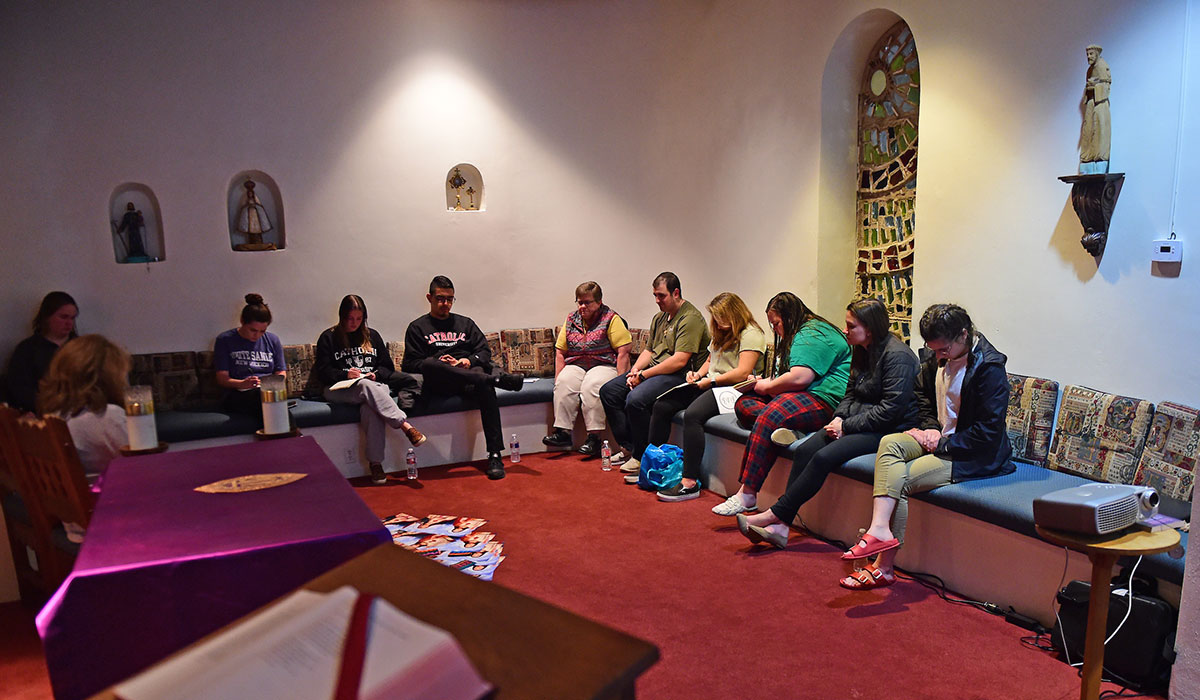
As they gather for their last prayer and reflection of the week, Sister Ruth says, “Let’s reflect on where the road has taken us. One week ago we began at the border wall, remembering lives lost there. We celebrated Mass in an onion field. We experienced the beauty and wonder of White Sands. We saw the criminalization of the American dream in a U.S. courthouse. You came looking for answers and now you leave with more questions. On the way home tonight we saw a beautiful rainbow. We saw that as a sign of hope, of God’s promise. God is present in the community you have created among yourselves.”
“I’m so grateful for this experience and for all of you,” says Bridie. “This trip would have been different if even one of you had not been here.”
— Ellen N. Woods, director of creative services, managing editor of CatholicU magazine. Photos by Patrick Ryan, university photographer. Video by Jamie Rife, video production coordinator. Story layout by Matt Hreha, web content specialist.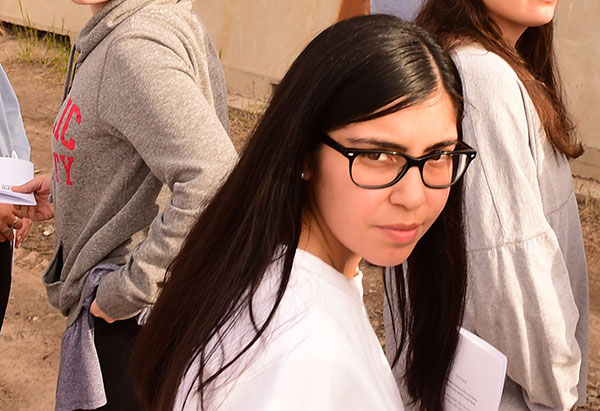
“There are no mental health services for immigrants. I want to change that. This trip reaffirmed my career path.”
Alexandra Franco, master’s student in social work
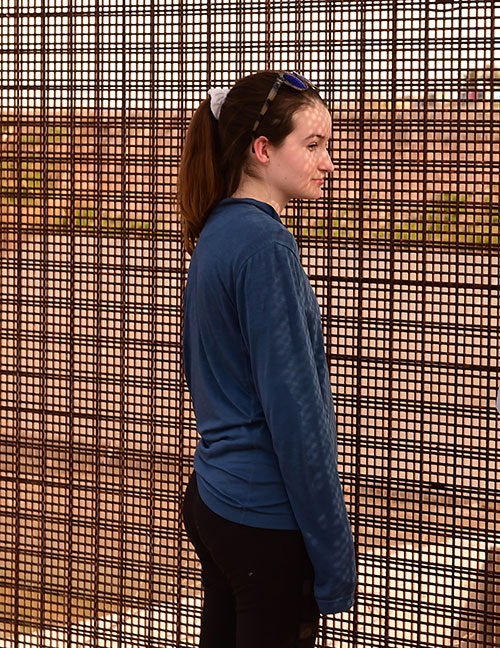
“We came with many different perspectives on immigration, but we all saw the human experience.”
Bridie McGroarty, philosophy major
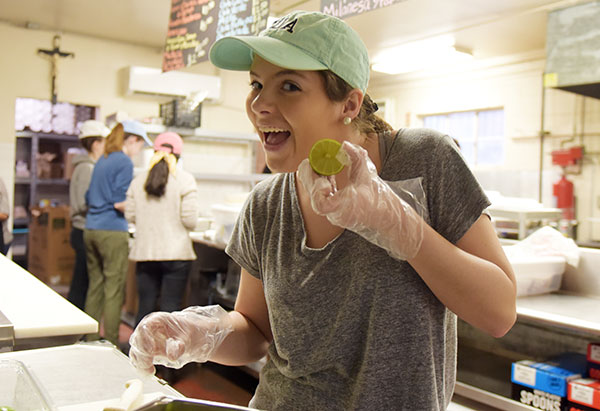
“We will use the experiences and knowledge we have learned on this trip to make us better people and professionals.”
Alyssa Diaz, nursing major
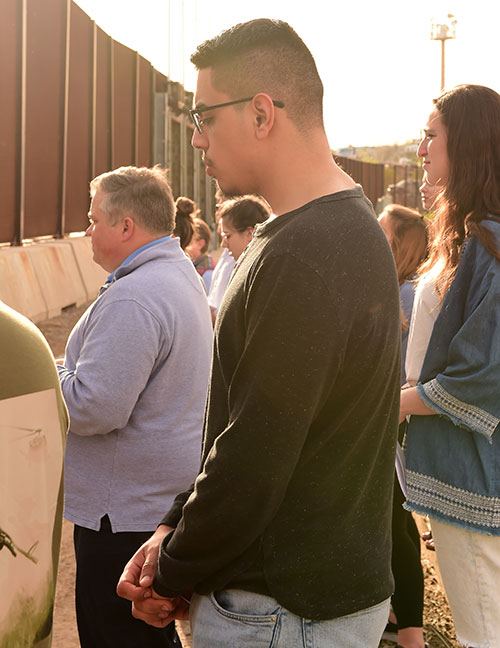
“I often felt helpless, until I was able to help translate at Catholic Charities of Southern New Mexico. I am now sure I want to be an immigration lawyer.”
Brayan Hernandez, double major in education and politics
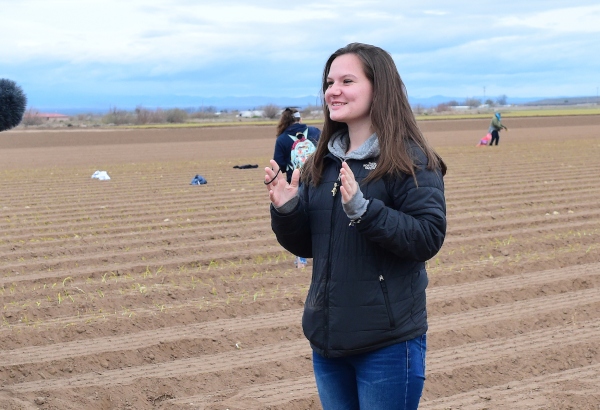
“We were strangers to a people who welcomed us. We quickly realized the stark contrast in the way we were treated and the way the migrants are treated when they reach the Borderlands.”
Catherine Kildea, politics major
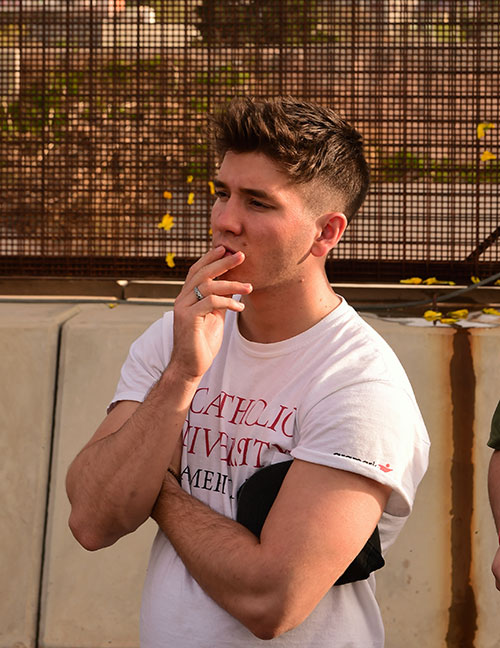
“The physical boundary divides a community. Seeing that made me angry.”
Luke Morris, psychology major
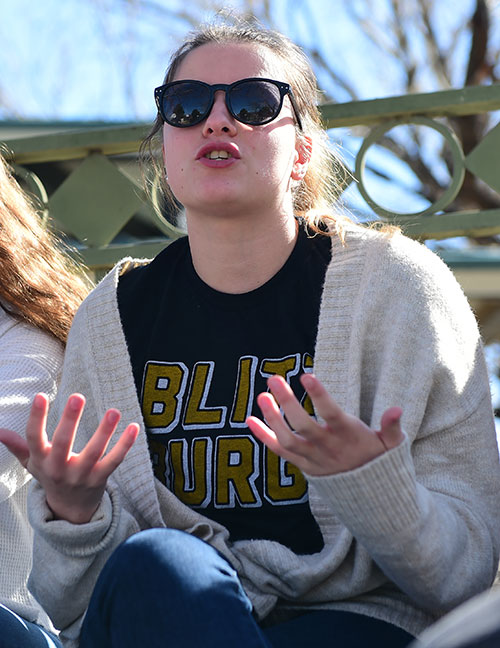
“I got a little emotional during the sunrise Mass. It was beautiful. I wish everyone could experience that.”
Nicole Nedrich, criminology major
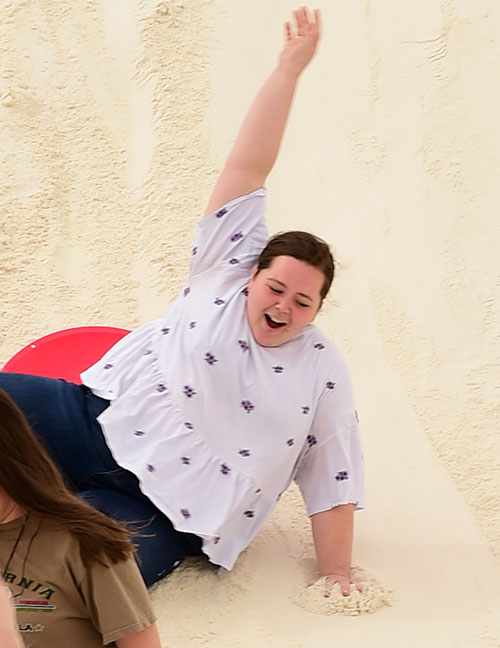
“I believe the experiences we had on this trip have influenced us all toward a more just future.”
Regina Brennan, double major in politics and anthropology
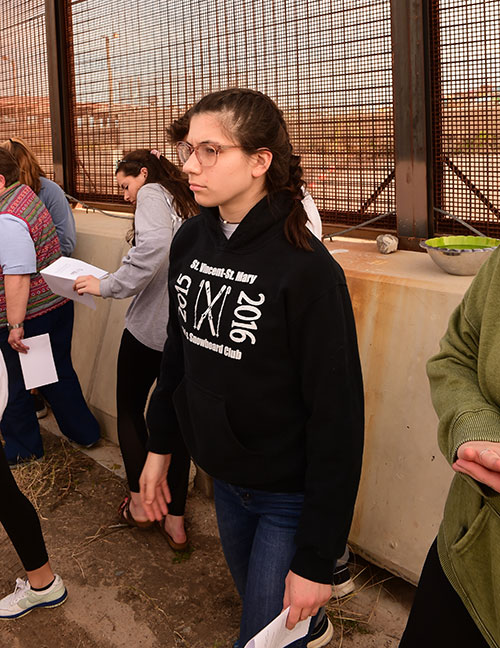
“The prayer service at the border allowed us to view the wall in a reverent way. It was simple and beautiful.”
Zoe Zelch, politics major
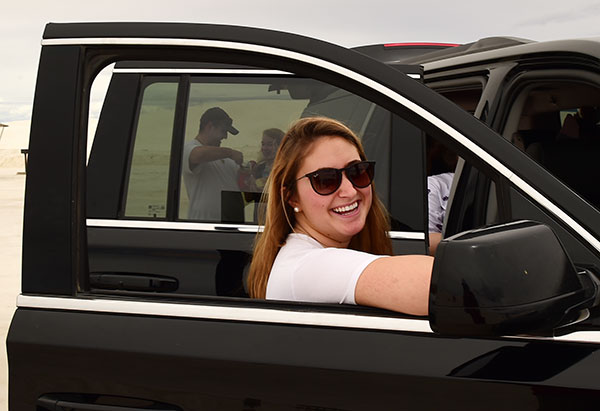
“No matter what side of the debate you are on, you can’t help being moved, changed even, by the human stories.”
Clare Wagner, psychology major
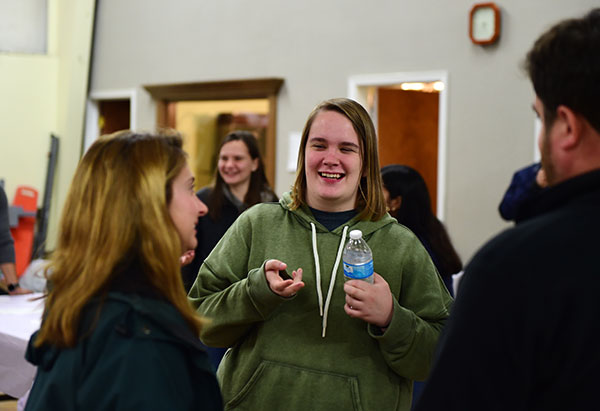
“I was so inspired by people we met who openly shared their stories. It made me want to share more of myself.”
Marirose Monaghan, media and communication studies major
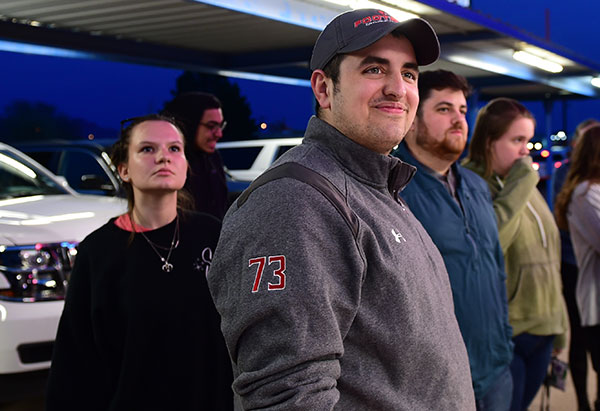
“Terms such as ‘illegal alien’ foster the dehumanization of people. In general, if we can all start with our vocabulary, it might keep us focused on the person.”
Nicholas Lubrano, politics major